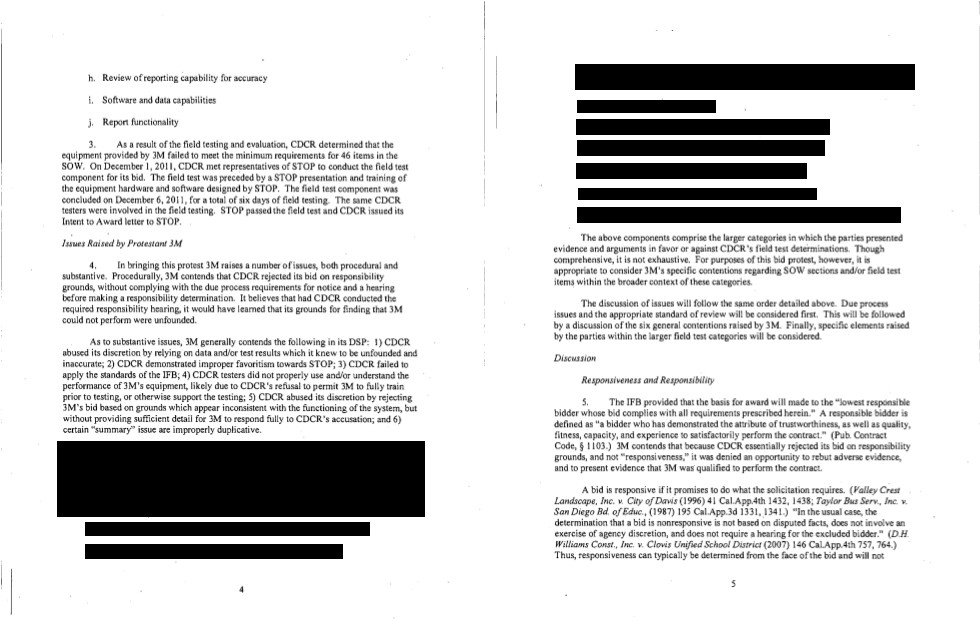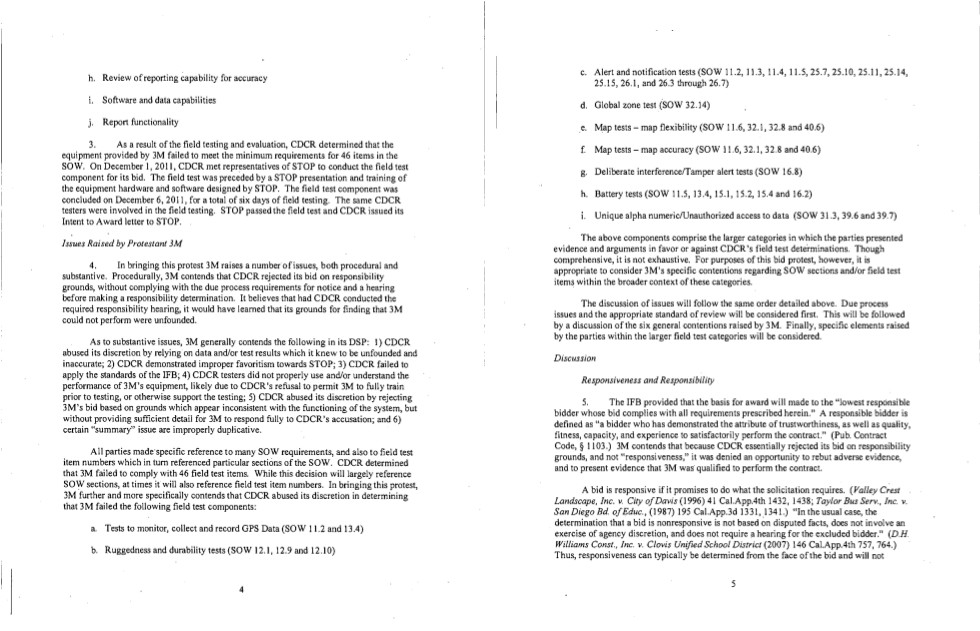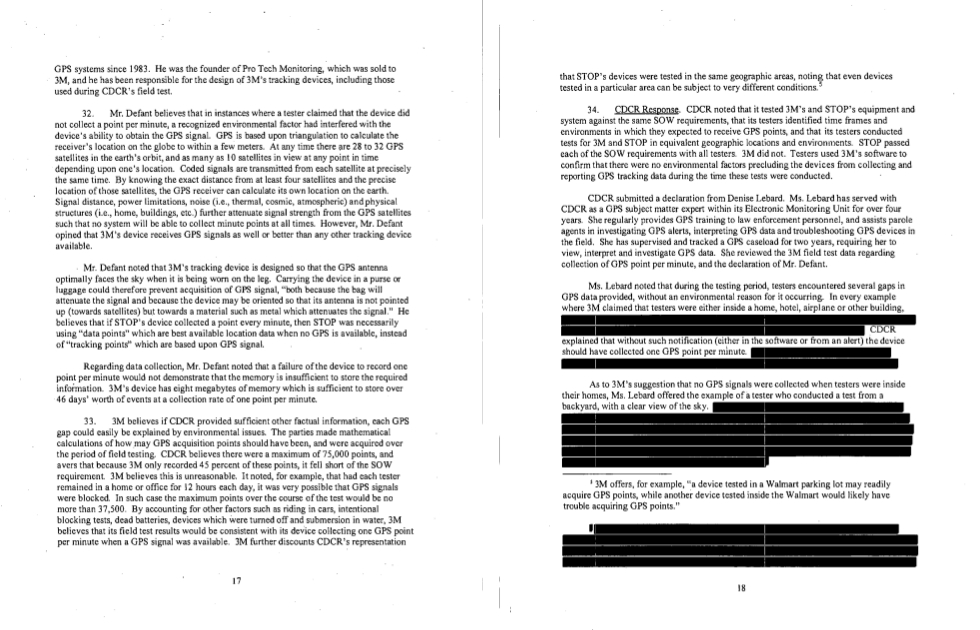Redacted
Alarming ankle monitor findings
A state report found that ankle monitors made by 3M, used to track thousands of sex offenders, were so inaccurate and unreliable they put the public at risk. The report was first released with only light redactions. Then California sought a court order for much heavier redactions, citing a potential threat to public safety and an erosion of public trust.
Below are examples of what a judge sealed from the public, at the state’s request, regarding three key findings: (A) which tests the device failed, (B) problems in the timely collection of data and (C) whether state officials believed such data was crucial.
Story: Story: Tests found major flaws in parolee GPS monitoring devices
A: Heavy | A: Light | B: Heavy | B. Light | C: Heavy | C: Light
California sought to hide the nine categories of tests that 3M failed.
The original report revealed that the devices failed durability, alert, battery and six other tests.
Among information considered sensitive: 3M’s ankle monitors failed to collect location data once per minute, and that signals are blocked within buildings.
The original report said that 3M claimed the data collection failures occurred only when the "testers were inside a home, hotel, airplane or other building."
State officials also sought to conceal their belief that electronic monitoring deters crime only if offenders believe they are tracked every minute.
The original report said state officials believed that "offenders are inclined to test the limits of the GPS device if they do not believe it is durable or functions properly."





